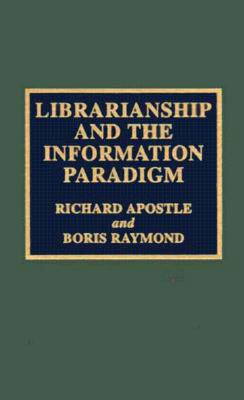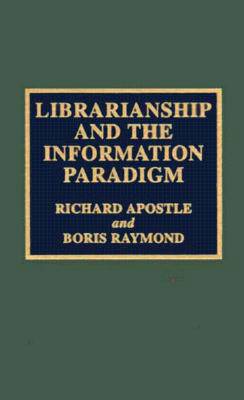
- Afhalen na 1 uur in een winkel met voorraad
- Gratis thuislevering in België vanaf € 30
- Ruim aanbod met 7 miljoen producten
- Afhalen na 1 uur in een winkel met voorraad
- Gratis thuislevering in België vanaf € 30
- Ruim aanbod met 7 miljoen producten
Zoeken
€ 85,45
+ 170 punten
Omschrijving
Today, two seemingly incompatible perspectives are contending for the soul of librarianship. Libraries were originally built around the activities of collecting, organizing, preserving and circulating texts, in addition to providing a variety of auxiliary services to library users. In the last three decades, however, an alternate interpretation of the role of libraries has emerged, which consists of the process of informing users with the aid of powerful new electronic technology. Will libraries continue to serve the public's broad educational, cultural, and recreational needs or will future librarians consider such needs peripheral ? Will the distinction between librarianship and 'information management' disappear? The authors utilize a series of interrelated Canadian studies of professional work, library and information literature, labor market conditions, and professional education to present an indication of specific trends in the field. In this way, the work will help librarians negotiate the possible transitions in librarianship without jeopardizing the integrity of a professional identity.
Specificaties
Betrokkenen
- Auteur(s):
- Uitgeverij:
Inhoud
- Aantal bladzijden:
- 192
- Taal:
- Engels
Eigenschappen
- Productcode (EAN):
- 9780810832732
- Verschijningsdatum:
- 22/05/1997
- Uitvoering:
- Hardcover
- Formaat:
- Genaaid
- Afmetingen:
- 146 mm x 224 mm
- Gewicht:
- 340 g

Alleen bij Standaard Boekhandel
+ 170 punten op je klantenkaart van Standaard Boekhandel
Beoordelingen
We publiceren alleen reviews die voldoen aan de voorwaarden voor reviews. Bekijk onze voorwaarden voor reviews.











